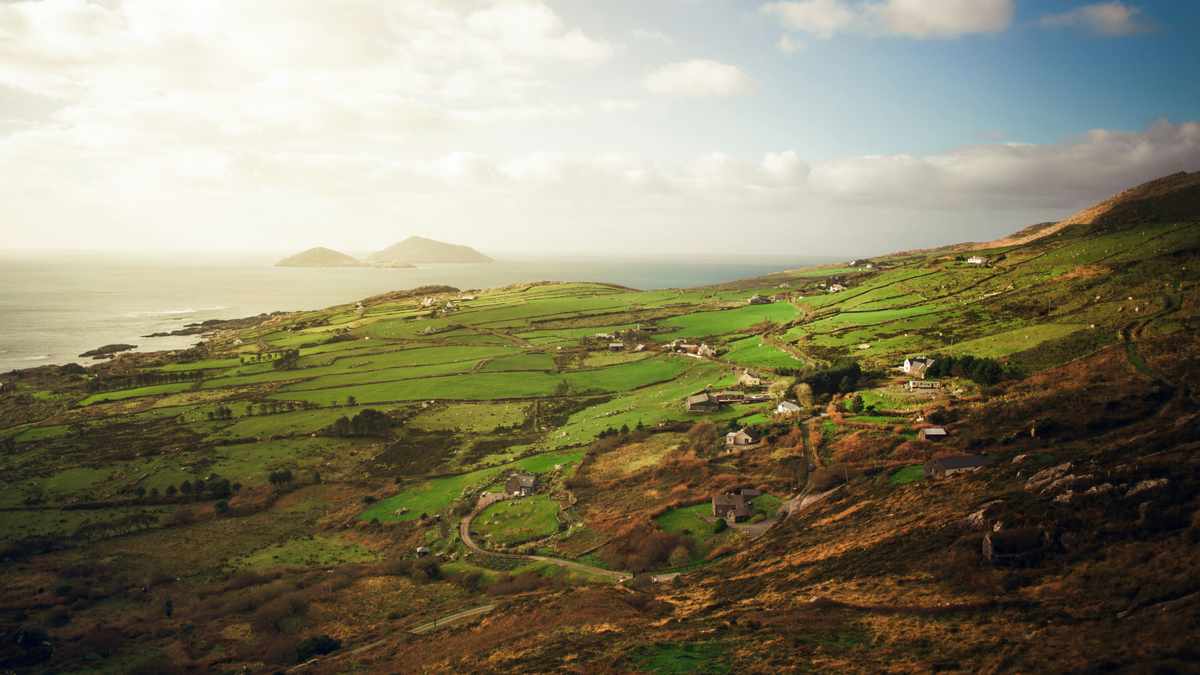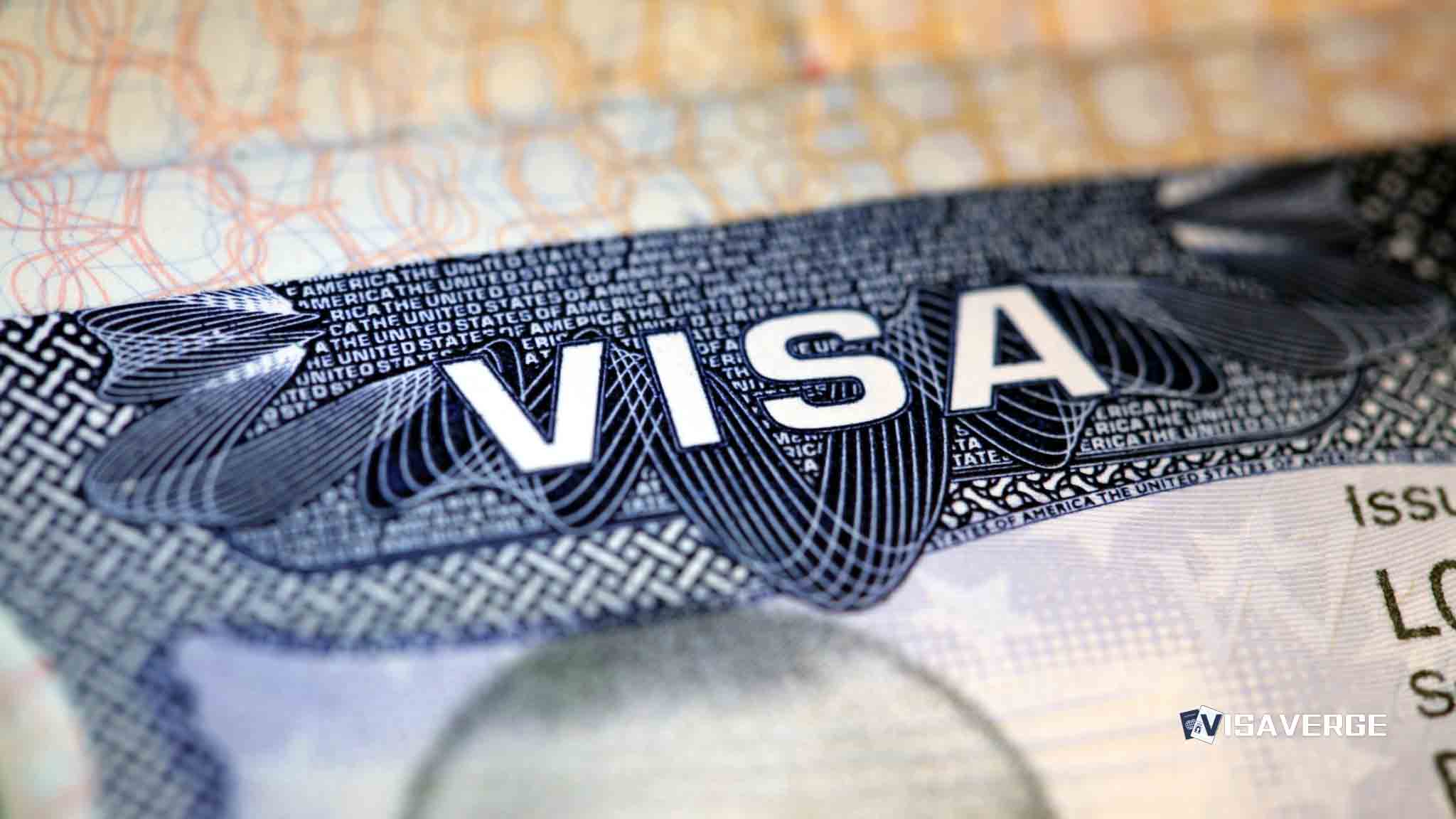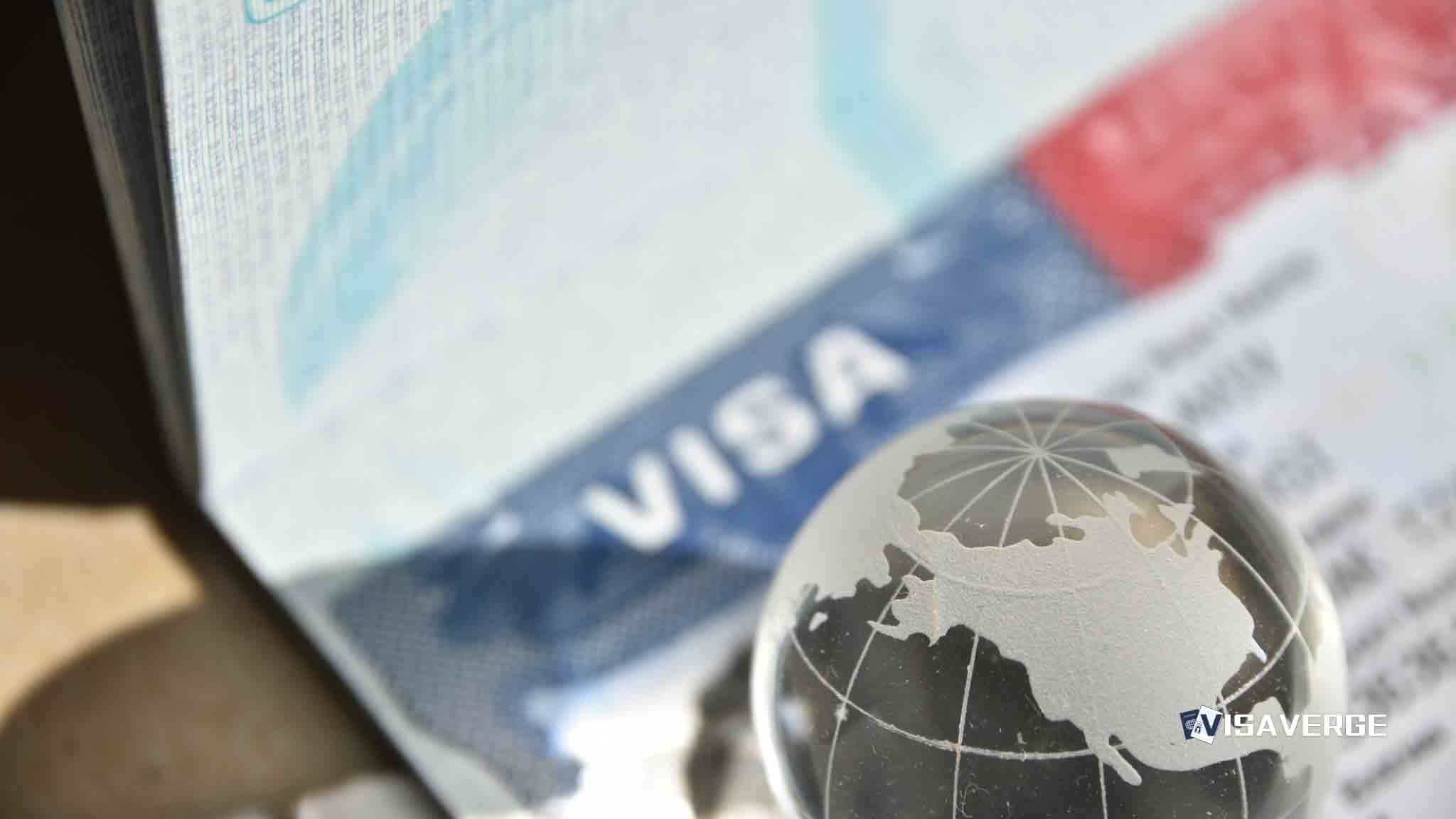Key Takeaways
• From July 10, 2024, South African and Botswana nationals must obtain visas for all travel to Ireland.
• Visa processing takes about two months with centres in Cape Town, Johannesburg, and Pretoria.
• Policy aims to reduce asylum application abuse and aligns Ireland with Schengen and UK visa rules.
Ireland’s New Visa Requirements for South African and Botswana Nationals: An Analytical Overview
Purpose and Scope

This analysis examines Ireland’s recent decision to impose new visa requirements on nationals from South Africa 🇿🇦 and Botswana 🇧🇼. The policy, effective from July 10, 2024, marks a significant shift in Ireland’s approach to border security and immigration management. The scope of this review covers the background and rationale for the change, the specific visa rules now in place, the practical effects on travelers and employers, and the broader trends and implications for migration between Ireland 🇮🇪 and these two African countries. The analysis draws on official government statements, stakeholder feedback, and published data to present a clear, fact-based picture of the situation as of June 30, 2025.
Methodology
This content is based on a careful review of official Irish government announcements, statements from the Minister for Justice, and published guidance from the Irish Naturalisation and Immigration Service (INIS). The analysis also considers feedback from affected community groups and employers, as well as comparisons with visa policies in the Schengen Area and the United Kingdom 🇬🇧. All facts, figures, and procedural details are sourced from these official and reputable channels, ensuring accuracy and reliability. Where specific forms or processes are mentioned, direct links to official resources are provided for reader convenience.
Key Findings
- Ireland now requires all South African and Botswana nationals to obtain a visa before entering the country for any purpose.
- The change aligns Ireland’s visa policy with the Schengen Area and the UK, both of which already require visas for South African nationals.
- The decision was driven by a sharp rise in international protection (asylum) applications from these countries, despite their designation as safe countries of origin.
- New visa rules apply to all travel purposes, including tourism, business, work, study, family visits, and transit.
- Standard visa processing times are about two months, with three new visa application centres established in South Africa.
- Transitional arrangements allowed some travelers with pre-booked trips to enter without a visa until August 9, 2024.
- The new rules have practical consequences for travelers, families, and employers, including longer planning times and higher administrative costs.
- The Irish government continues to monitor the situation and may adjust visa processing capacity or policy in response to future trends.
Data Presentation and Visual Descriptions
Visa Policy Timeline and Key Changes
| Date | Policy Status for South Africa & Botswana Nationals | Notes |
|---|---|---|
| Before July 10, 2024 | Visa-exempt | No visa needed for any purpose |
| July 10, 2024 | Visa requirement introduced | All travelers must obtain a visa before entry |
| July 10 – Aug 9, 2024 | Transitional period | Travelers with bookings made before July 10 can enter without a visa until Aug 9 |
| After Aug 9, 2024 | Full enforcement of visa requirement | No exceptions; all travelers need a valid visa |
Visa Application Centres in South Africa
- Cape Town
- Johannesburg
- Pretoria
These centres are dedicated to handling Irish visa applications from South African nationals, aiming to manage the increased demand and streamline the process.
Processing Times
- Standard processing time: Approximately two months for employment and business visas.
- Other visa types: Similar timelines expected, but may vary depending on application volume and complexity.
Comparisons, Trends, and Patterns
Alignment with Schengen and UK Policies
Ireland’s move brings its visa requirements for South Africa and Botswana in line with those of the Schengen Area and the United Kingdom 🇬🇧. Both regions have long required visas from South African nationals. This harmonization reduces the risk of Ireland becoming a “back door” entry point to the European Union for those seeking to bypass stricter controls elsewhere.
Rising Asylum Applications
A key driver for the policy change was a notable increase in international protection (asylum) applications from South African and Botswana nationals. Despite both countries being officially recognized as safe, the volume of claims raised concerns about the integrity of Ireland’s immigration system. The government cited the need to prevent abuse of the asylum process and to ensure that resources are available for those with genuine protection needs.
Border Security in Dublin
Irish authorities have reported intensifying border security issues in Dublin, particularly related to undocumented arrivals. The new visa requirement is intended to help manage these challenges by ensuring that all travelers from South Africa and Botswana are screened before arrival.
Transitional Arrangements
To minimize disruption, Ireland allowed nationals from these countries who had booked travel before July 10, 2024, to enter without a visa until August 9, 2024. This grace period recognized the practical difficulties faced by travelers with pre-existing plans and provided a buffer for the new system to take effect.
Evidence-Based Conclusions
Impact on Travelers
The introduction of visa requirements means that South African and Botswana nationals must now plan their trips to Ireland well in advance. The standard two-month processing time for visas, combined with the need to gather supporting documents and attend biometric appointments, adds complexity and cost to travel planning. This affects not only tourists but also students, business travelers, and families seeking to reunite.
Impact on Employers
Employers in Ireland who wish to hire talent from South Africa or Botswana must now factor in longer onboarding times and higher administrative costs. The need for a visa adds at least two months to the recruitment process, which may affect project timelines and staffing decisions. Employers are advised to start the visa process as early as possible and to provide clear guidance to prospective employees about the required steps.
Border Security and Migration Management
The new rules are expected to reduce irregular migration and improve border security, particularly in Dublin. By requiring visas for all purposes, Ireland can better control who enters the country and for what reason. This helps to ensure that the immigration system is used appropriately and that resources are directed to those with legitimate needs.
Community and Stakeholder Perspectives
While some South African and Botswana community groups have expressed concern about the impact on legitimate travelers and family reunification, there is also recognition of the government’s responsibility to manage migration and maintain security. The Irish government has emphasized that the decision was not taken lightly and that it remains committed to facilitating legitimate travel while protecting the integrity of the immigration system.
Step-by-Step Guide: How to Apply for an Irish Visa
For South African and Botswana nationals, the visa application process is now mandatory for all travel to Ireland. The following steps outline the process:
- Determine Visa Type
- Identify the correct visa category based on your purpose of travel: tourist, business, work, study, family, or transit.
- Prepare Documentation
- Gather all required documents, including:
- Valid passport
- Proof of purpose of visit (invitation letter, itinerary, etc.)
- Evidence of financial means
- Accommodation details
- Additional documents as required for your visa type
- Gather all required documents, including:
- Submit Application
- Apply online through the Irish Naturalisation and Immigration Service (INIS) website.
- Alternatively, submit your application at one of the visa application centres in Cape Town, Johannesburg, or Pretoria.
- Biometrics and Interview
- Attend the visa application centre for biometric data collection (fingerprints and photo).
- Some applicants may be asked to attend an interview.
- Processing Time
- Allow approximately two months for your visa to be processed. Apply as early as possible to avoid delays.
- Receive Decision
- You will be notified of the outcome. If approved, your visa will be affixed to your passport.
- Travel
- Carry your visa and all supporting documents when traveling to Ireland. Be prepared to show them at the border.
For more detailed information and to access the official application forms, visit the INIS visa application page.
Limitations and Considerations
- Processing Delays: High demand may lead to longer processing times, especially during peak travel seasons. Applicants should plan accordingly.
- No Fast-Track Option: As of mid-2025, there is no official fast-track or expedited processing service for Irish visas from South Africa or Botswana.
- Policy Adjustments Possible: The Irish government continues to monitor migration trends and may adjust visa processing capacity or policy as needed. However, there are no announced plans to revert the visa requirement or introduce exemptions.
- Impact on Family Reunification: The new rules may make it harder for families to visit or reunite in Ireland, particularly on short notice.
- Employer Burden: Businesses hiring from South Africa or Botswana face increased administrative work and must adjust their recruitment timelines.
Comparative Analysis: Ireland, Schengen Area, and UK Visa Policies
| Country/Region | Visa Requirement for South African Nationals | Notes |
|---|---|---|
| Ireland 🇮🇪 | Yes (since July 10, 2024) | Applies to all purposes, including transit |
| Schengen Area | Yes | Long-standing requirement |
| United Kingdom 🇬🇧 | Yes | Long-standing requirement |
| Ireland (pre-2024) | No | Visa-exempt for all purposes |
This table shows that Ireland’s policy is now consistent with those of its European neighbors, reducing the risk of policy loopholes and enhancing regional security cooperation.
Official Statements and Rationale
Minister for Justice Helen McEntee described the decision as “carefully considered,” highlighting the need for effective immigration controls and alignment with EU and UK policies. Irish officials have acknowledged that the new visa rules may seem harsh but argue they are necessary to address the volume of international protection claims and border management challenges.
Community groups from South Africa and Botswana have voiced concerns about the impact on legitimate travelers, especially those seeking to visit family or attend important events. However, there is also an understanding of the government’s responsibility to maintain secure and orderly migration.
Practical Guidance for Affected Individuals and Employers
- Apply Early: Given the two-month processing time, start your visa application as soon as you know your travel dates.
- Check Documentation: Ensure all required documents are complete and accurate to avoid delays or refusals.
- Use Official Resources: Rely on the INIS website and official visa application centres for up-to-date information and forms.
- Employers: Factor visa processing times into recruitment and onboarding plans. Provide clear instructions to prospective employees from South Africa and Botswana.
Conclusion
Ireland’s decision to impose visa requirements on South African and Botswana nationals represents a major change in its immigration policy. The move aims to strengthen border security, align with European partners, and manage rising asylum applications. While the new rules create challenges for travelers and employers, they are part of a broader effort to ensure that Ireland’s immigration system remains fair, secure, and responsive to changing migration patterns.
As reported by VisaVerge.com, the Irish government will continue to monitor the effects of the new policy and may make further adjustments as needed. For now, all travelers from South Africa and Botswana must obtain a visa before entering Ireland, and both individuals and employers should plan accordingly.
For the most current information and official guidance, visit the Irish Naturalisation and Immigration Service (INIS) website. This resource provides detailed instructions, application forms, and contact details for visa application centres in South Africa.
By staying informed and following the correct procedures, travelers and employers can adapt to the new requirements and continue to build strong connections between Ireland, South Africa, and Botswana.
Learn Today
Visa Requirement → A government rule mandating travelers to obtain a visa before entering a country.
International Protection (Asylum) → Legal protection granted to individuals fleeing persecution or serious harm abroad.
Irish Naturalisation and Immigration Service (INIS) → Government agency managing immigration applications and visa processing in Ireland.
Visa Application Centre → Designated facility where applicants submit visa requests and provide biometric data.
Transit Visa → A visa allowing travelers to pass through a country on their way to another destination.
This Article in a Nutshell
Ireland now requires visas for South African and Botswana nationals starting July 2024, impacting all travel types. This aligns Ireland with Schengen and UK rules. Processing takes around two months, with local centres in South Africa. The change addresses rising asylum claims and strengthens border security in Dublin.
— By VisaVerge.com





